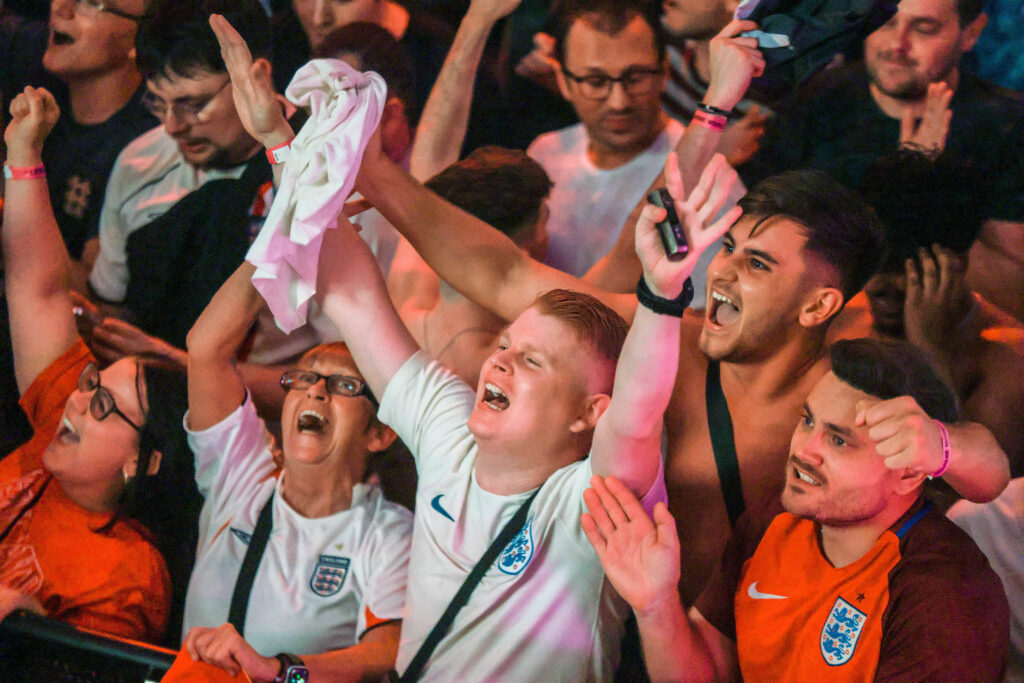- Research from Dojo suggests that around 768,000 Brits might call in sick on Monday following the excitement of the Euro final on Sunday night.
- Over £30 million was spent in London alone as fans celebrated England’s victory over Switzerland to reach the Semi-Finals.
- Jon Knott from Dojo anticipates a significant increase in pub attendance and sales, with many UK adults traditionally heading to pubs or restaurants during football tournaments.

Close to 1 million people in the UK are likely to “pull a sickie” following the England v Spain final in the Euros, according to a study by SME payments provider Dojo.
Dojo said its estimate was based on a survey showing 97% of UK adults who booked venues to screen England’s matches had expected the team to reach this stage in the tournament. Fans in London spent more than £30 million after cheering England on to their first ever Semi-Final where they would go onto play against hosts Portugal.
As the last match plays out, hundreds of fans are likely to assemble at pubs and live screenings and garden parties that will explode into celebrations long after full-time is blown. Research from online bathroom supplier Drench has revealed that the phenomenon of “pulling a sickie” is rife, with over 49.9 million TikTok posts about calling in unwell to work – pointing towards higher levels of absenteeism on our return.
Dojo collaborated with HR expert and CEO Lucas Botzen of Rivermate to highlight the impact of major football games on workplace attendance. Botzen noted that during the 2018 FIFA World Cup, absenteeism increased by up to 30% on days when the national team played, a trend that might repeat or even exceed for the Euro final.
Based on this data, Dojo estimates that over 700,000 Brits might skip work on Monday, nursing hangovers from celebrating England’s performance in the final. Jon Knott, Head of Insights at Dojo, commented on the expected surge in pub attendance: “We expect to see a rise in customers across the UK flocking to the pub for the final, and with pubs allowed to open until 1 am, we anticipate a significant increase in sales.”
Knott further emphasized the enduring appeal of football tournaments for the hospitality industry, stating, “From our research, over a quarter (28%) of UK adults ‘always’ go to pubs or restaurants during football tournaments, and we are certain that a match as exciting as England in the EURO finals will be no exception. It’s great to see the increase in footfall around the Euros.”
The resurgence in pub patronage is a welcome development for an industry that has faced numerous challenges over the past few years. Pubs have had to innovate and enhance their offerings to attract new customers. The Euros provide an opportunity for people to support both their national team and the local hospitality sector, fostering community spirit and economic activity.
As fans prepare for Sunday’s final, the excitement is palpable. The combination of national pride, community gatherings, and the potential for historic victory promises to make this event memorable. While businesses brace for a potential rise in absenteeism on Monday, the celebration of football and its unifying power remains the focal point for many.
In conclusion, the anticipation surrounding the England-Spain Euro final extends beyond the match itself, influencing social and economic behaviors across the UK. The potential for a significant number of fans to “pull a sickie” highlights the cultural significance of football in British life, showcasing its impact on both personal and professional spheres.